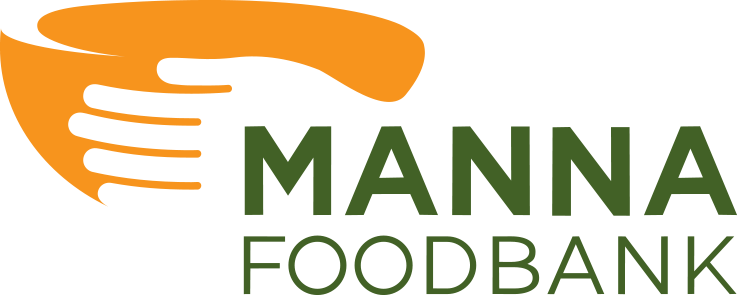by KC Johnson
[Editor’s Note: MANNA has opted to identify IWP program participants using their initials for security and privacy purposes.]
In Asheville, North Carolina, MANNA FoodBank works to provide around 20 million meals a year, along with the help of over 200 donor agencies, and hundreds of individual volunteers.
One group of six women, known as the “IWP Folks,” are doing their part at MANNA to help others, while transforming their own troubled pasts into positive futures. They are part of the Incentive Wage Project at Western Correctional Center for Women, a minimum-security camp in Black Mountain, North Carolina.
Anyone who has the opportunity to visit – or better yet, volunteer with – MANNA will see an organization dedicated to their mission to “involve, educate, and unite people in the work of ending hunger in Western North Carolina.” What they will not see is the impact they have on those behind the scenes.
The Incentive Wage Project with MANNA first started in 1998, (there were two breaks, one due to COVID-19 institutional lockdowns), resumed in 2021. Currently, it is overseen by David Velez, the Assistant Warden of Programs at WCCW. To even be eligible for this highly coveted job, one must meet rigorous criteria, including no recent infractions and less than three years remaining. In addition, Velez selects those who have shown a commitment to change, personal growth, and trustworthiness.
It is not about the money. As IWP, the women are only able to earn $1 a day, while working full-time, 40 hours a week, alongside paid employees. They stay from several months to a year or more, until eligible for work-release (a paid job, through prison contract), are released, or in rare instances, let go for an infraction.
_ _ _
While with MANNA, they receive valuable job training, such as forklift and reach truck certifications. Also, they learn inventory control, reclaim, and distribution procedures.
AS, 30, started in March 2023 as an order-picker. She tells me “the skills I have learned” will be beneficial to gaining employment once released.
RJ, 45, is originally from Arizona, and began in July 2023. She works in the reclaim department where they process between seven and ten thousand pounds of food daily, all donated from Ingles Markets, Inc.
For RJ, “The opportunity to do something positive” where she “admires their values,” means the most.
The Volunteer Center is the true backbone of MANNA, with an average of 60 volunteers a day; most are regulars.
HE, 36, is a volunteer associate and assists in organizing projects and training new volunteers. She started in September 2023 and “likes working with the people,” because here, “I’m not looked at like a criminal.”
This is the general consensus from all of the IWP participants. At MANNA, they are treated like all employees, including participating in staff meetings, field days, and planning.
Many employees, such as Michelle B., MANNA’s bookkeeper, feel IWP are central to daily operations, stating, “We couldn’t do what we are [doing] without the program.”
_ _ _
From the moment they are picked up from Western Correctional by one of several MANNA volunteer drivers, at 7:15 am, until they are dropped back off, at 4:30 pm, they are a contributing part of society.
Coordinating from MANNA is Ash T., from the Human Resources department. They handle training, schedules, communication with Velez, and any other personal, or group issues, while striving to make the experience beneficial.
The benefits go far beyond just practical job experience. MANNA receives hardworking women, and the women are able to leave the facility each day and interact in a positive atmosphere, which helps smooth the transition back into society.
“It helps me escape from the negativity inside, reminds me [prison] will not be my life forever,” says TA, 34. Previously a dental hygienist, TA started in the reclaim department in September 2023.
Having an opportunity like this instills confidence, self-worth, and discipline, which many are lacking after years inside the fences. They are able to prove, not just to others, but themselves, that they are worthy of respect and can succeed.
_ _ _
In addition to the six IWP positions, three women were able to secure work release positions here, with full pay. (When inmates are on work release, they are required to pay room and board each month to the facility, typically $400-500).
KP, 34, a mother of five, started as IWP in March 2023, and earned a work release spot in November 2023. “I love my job, and how they treat us,” she said.
Programs like this are vitally important for re-integration. With more companies willing to hire felons, the equipment training, and social skills, will help them stand out from other applicants.
ES, 37, transitioned from IWP to work release in July 2023, and works in the volunteer department. She is “motivated by the sense of community,” and also says her “communication skills have improved.”
GL says she has “learned how to deal with negative situations better,” and is “less confrontational.” She began with IWP in February 2022, and was the first work release, in June 2022. GL is thinking of staying on after release.
_ _ _
MANNA is a food distributor, focused on getting nutrition where it is needed, but they are also instrumental in changing lives through their support and guidance.
Most inmates and felons carry the burden of feeling like they must work twice as hard for half the respect. Yet, through this program, these women have found the strength to step out of their comfort zones and take a chance. It has paid off.
I should know. I just celebrated my one-year anniversary.
For all of us, giving back to society, and being involved in the community, something bigger than ourselves, has given us the one thing we all need to succeed: a sense of pride.






